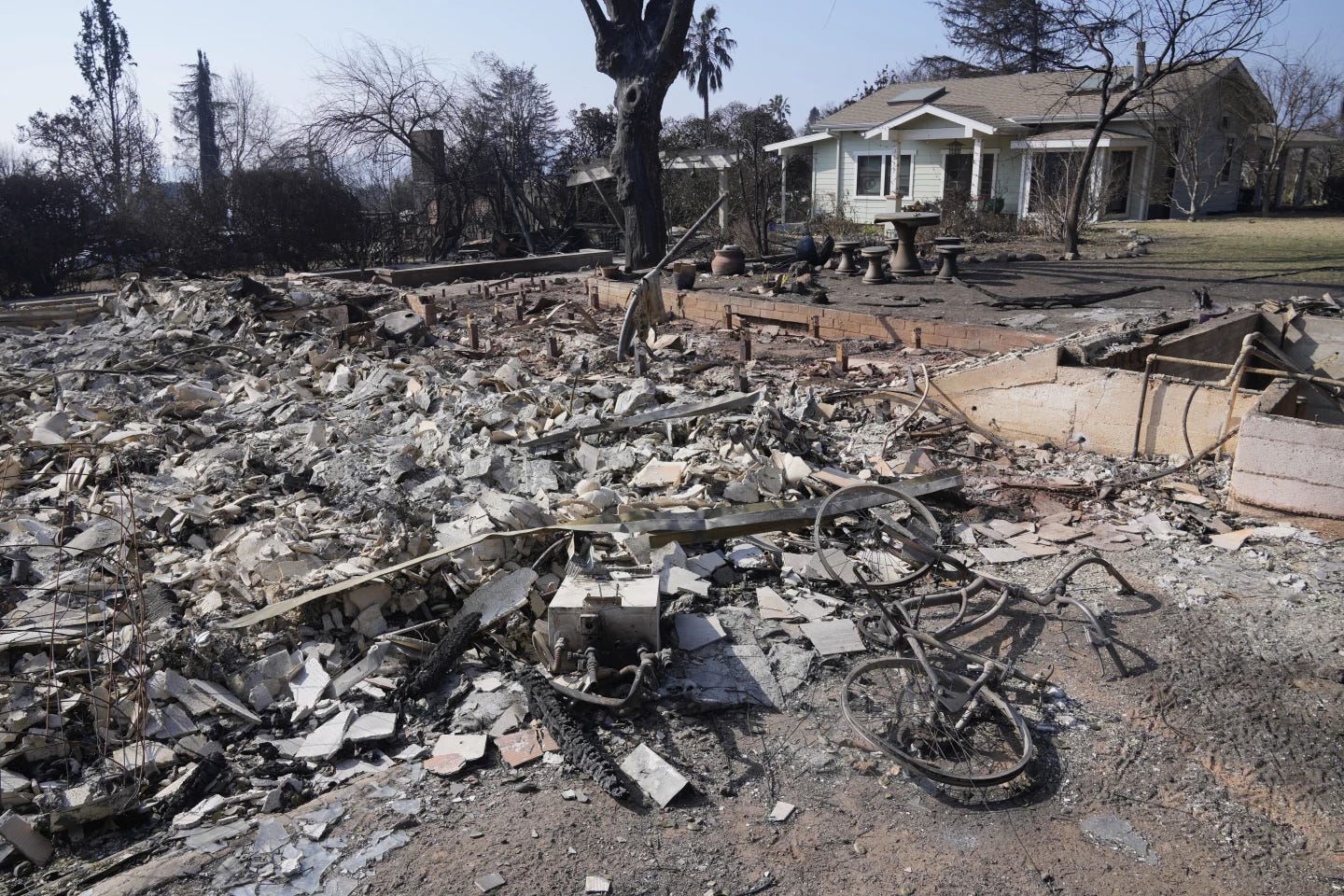How to Financially Prepare for Natural Disasters
NEW YORK (AP) — If you live in an area vulnerable to natural disasters like wildfires, floods, blizzards, tornadoes, or earthquakes, it’s crucial to prepare your finances ahead of time—not just through insurance, but by organizing and safeguarding essential documents and accounts.
The Federal Emergency Management Agency (FEMA) and the Red Cross recommend a series of proactive steps to ensure financial security in the event of a disaster. These steps include organizing important documents, recording a video or taking photographs of your home and valuables, and having cash readily available in case ATMs and banking services are disrupted.
Lisa Berdie, director of policy and research for the Financial Health Network, emphasizes that financial preparedness goes beyond insurance coverage. She stresses the importance of investing in measures to reduce the severity of climate impacts and mitigate financial harm. "It's essential to recognize that it's not only the major events but also smaller-scale occurrences and ongoing stressors, like extreme heat, that can have significant financial consequences," Berdie said.
Here’s how to organize your financial life in preparation for a disaster:
1. Compile and Assess Key Documents
FEMA advises that households begin by gathering critical documents, such as birth and marriage certificates, social security cards, military service records, and pet IDs and health records. Additionally, keep records of housing payments, utility bills, insurance policies, bank account numbers, paystubs, tax forms, and wills.
For medical preparedness, ensure you have health insurance cards, prescription records, and any medical device or disability-related documents.
Keep a list of important contacts, including:
Landlords or mortgage representatives
Doctors and other healthcare providers
Insurance agents
Military and social services representatives
Lawyers and financial advisors
Local civic organizations and places of worship
FEMA recommends storing important phone numbers in multiple locations, not just on your phone.
2. Why This Information Matters
Having these records organized is essential when applying for disaster assistance or re-establishing financial accounts if electronic access is unavailable. They also help prove the identity of household members and facilitate communication with employers, family, and friends during and after a disaster.
3. Additional Steps for Financial Organization
If you don’t have original copies of necessary documents, reach out to the relevant agency or company for replacements. Consider switching from paper checks to direct deposit for both employer and federal benefits, and sign up for automatic bill payments.
FEMA suggests keeping printed or digital records of automated bill payments, such as rent, utilities, and loan payments, to track financial obligations even when you are unable to access accounts. Download banking and bill payment apps to stay connected during emergencies.
Record your home’s condition and valuables by taking photos or videos, which will be helpful for insurance claims if necessary.
4. Store Cash with Important Documents
FEMA and the Red Cross recommend keeping cash in the same secure location as your important documents. This ensures you can cover emergency expenses if ATMs are unavailable or if banks are closed. Keep enough cash for essentials like food, medications, and gas.
5. Keep Your Financial Information Up-to-Date
Regularly review your financial documents, including insurance policies, to ensure they reflect current circumstances. This includes reviewing homeowners, renters, and auto insurance.
6. Secure Document Storage
Store both physical and digital copies of key documents in a secure place. For paper documents, use a fireproof and waterproof safe or a bank safe deposit box. If you use a safe deposit box, verify who can access it in case of an emergency or in the event of your death or incapacitation.
For electronic files, use a password-protected flash drive or external hard drive, and keep these in a safe location along with paper copies.
7. Regular Updates Are Essential
Regularly update your documents to reflect significant life changes—such as a change in insurance, moving to a new home, opening or closing bank accounts, getting married or divorced, the birth of a child, or preparing for retirement. These updates are critical for ensuring that your documents are always current in case of an emergency.
By taking these steps, you can reduce financial stress during a natural disaster, giving you peace of mind knowing your financial foundation is secure.


